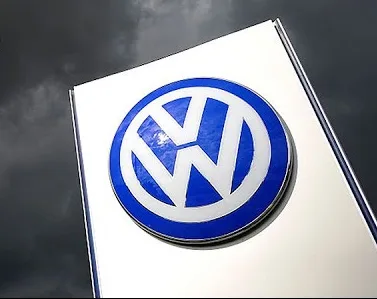Volkswagen’s potential closure of two German plants highlights the challenges faced by European carmakers in transitioning from fossil fuels to electric models
Volkswagen is contemplating the closure of two German factories—a first for the company in its home country—as it seeks to cut costs in response to the growing shift from fossil fuel vehicles to electric models. The carmaker informed its works council on Monday that it is exploring the possibility of shutting down “at least one larger vehicle manufacturing plant and one component factory” in Germany. This move could potentially save billions of euros.
The decision underscores the broader difficulties facing traditional European automakers as they transition from profitable petrol and diesel cars to less profitable but cleaner electric vehicles. Volkswagen’s consideration of plant closures comes at a time when the automotive industry is under significant pressure from competitive Chinese electric vehicle manufacturers, who benefit from lower production costs and higher profit margins.
Oliver Blume, CEO of the Volkswagen Group, described the current state of the European automotive industry as “very demanding and serious,” citing increased competition and a decline in Germany’s manufacturing competitiveness. The European Union’s recent tariffs on Chinese imports, aimed at countering unfair state subsidies, have further complicated the landscape. Despite these tariffs, Chinese manufacturers may still maintain a cost advantage in Europe.
Volkswagen, which oversees brands including Audi, Porsche, and Škoda, had previously proposed closing an Audi factory in Belgium, marking its first European factory closure in four decades. However, closing a German factory would represent a significant shift and is likely to be politically controversial.
Germany’s economy, teetering on the brink of a technical recession, adds to the pressure on the automotive sector as it scrambles to fund new electric vehicle production. The prospect of Volkswagen factory closures intensifies scrutiny on Chancellor Olaf Scholz, especially following recent election losses to the far-right Alternative für Deutschland party in Thuringia.
Volkswagen’s works council has expressed strong opposition to the proposed closures, with Daniela Cavallo, chair of the council, criticizing the board for failing to address fundamental weaknesses in product, complexity, and processes. The union IG Metall’s Thorsten Gröger called the plan “irresponsible” and warned of potential job losses and threats to Volkswagen’s core operations.
Additionally, Volkswagen is reconsidering previously committed investments, including a compact electric SUV for the Wolfsburg plant and the Trinity saloon models for the Zwickau factory. The company’s focus on potential plant closures reflects its urgent need to adapt to the evolving automotive market while navigating economic and political pressures.
Analysis:
Political: Volkswagen’s potential factory closures are not only a strategic move but also a politically sensitive issue. The closures could exacerbate economic challenges in Germany and put additional pressure on Chancellor Olaf Scholz’s administration. The situation is compounded by the rise of the far-right in regional elections, highlighting a period of political instability that could influence policy responses and public sentiment.
Social: The proposed closures underscore the broader social impact of the automotive industry’s transition to electric vehicles. Job losses and the threat to established manufacturing sites reflect a significant shift in employment patterns and regional economies. The strong opposition from unions and works councils illustrates the social challenges of restructuring and the need for a balanced approach that considers both technological advancement and workforce stability.
Racial: The global competition between European and Chinese car manufacturers raises questions about economic equity and the impact of international trade policies. While not directly a racial issue, the disparity in production costs and subsidies between regions can affect global trade dynamics and influence perceptions of fairness and competition in the automotive industry.
Gender: The factory closures and the broader industry transition do not directly address gender issues but may indirectly affect gender dynamics within the workforce. Historically, manufacturing jobs have been male-dominated, and changes in the industry could impact job opportunities and gender representation in the automotive sector.
Economic: Volkswagen’s potential closures are a strategic response to economic pressures, including the need to transition to electric vehicles and compete with lower-cost Chinese manufacturers. The closures would reflect a broader trend of restructuring within the automotive industry as companies adapt to new market realities. The economic impact of such closures could be significant, affecting not only the company’s financial health but also regional economies and employment levels.
